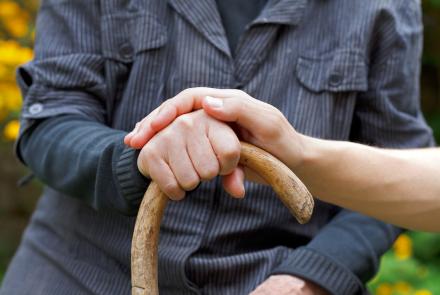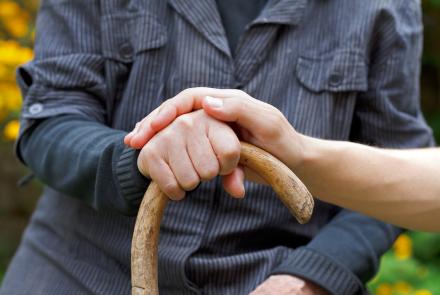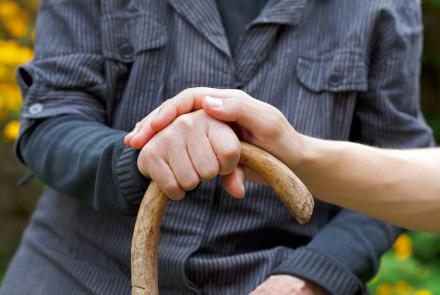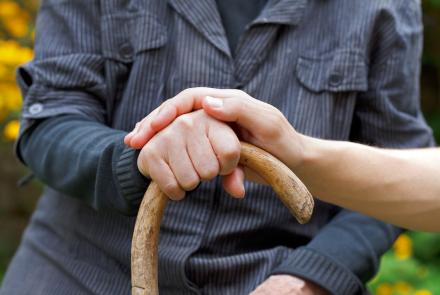
Amrita Patil Pimpale, a qualified Dementia Care Trainer and Founder of Echoing Healthy Ageing, a social enterprise working in Dementia care sector, provides consultation and training for families and healthcare professionals in order to sensitize them to care for elderly with dementia. Here she advocates methods on how to improve quality of life for dementia patients and their caregivers.
As a dementia caregiver consultant, what are the tips and advice that you give caregivers to facilitate their work?
Build a support system around you. It is important that you understand what your loved one with dementia is going through, empathy will bring out best care. Educate yourself with techniques of dementia care to manage care of loved on, this will reduce frustration emotional trauma in carers.
Do take support of professionals, family members, friends for short respite for yourself, plan short breaks, spend time on yourself in order to not get burdened with care responsibility. Most important, do not take the guilt trip. Caregiving is overwhelming, you are trying your best for your loved one there are good and bad days, don’t be hard on yourself.
How does a caregiver ensure that a person with dementia remains fit and healthy both physically and mentally?
A Person with Dementia has similar needs as anyone else without dementia. Good diet, exercise, occupation, needs to meet people socially etc. Only modification is required to do these activities is designing activities according to their ability and interest.
Studies have found that a personalized treatment plan for person with dementia, which includes appropriate diet, brain stimulation, exercise, sleep hygiene, medication and vitamins, has shown improvements in people with dementia.
The individual may not only be diagnosed with Dementia but also with several other age related diseases such as diabetes, issues with blood pressure, arthritis, physical ailments, etc. Treating these diseases independently alongside the treatment for Dementia becomes an important aspect.
- Regular exercise according to one’s ability and health such as regular walks, Yoga etc.
- Maintaining a balanced diet as nutritional deficiencies could further complicate the manifestation of the symptoms.
- Set up a daily routine with fixed meal timings, time for walk, exercise.
- Arrange friends, relatives, professional carers visits at home as it provides much needed social contact for person with dementia.
- Set up time to do structured activity for at least 15-20 minutes during the day. Be it playing age appropriate game, cleaning a drawer, going through old photographs, folding laundry, any activity that they enjoy doing.
- Encourage the person to be independent as much as possible, this empowers them, maintain confidence self-esteem, these are crucial for psychological wellbeing.
What should a caregiver do if the person with dementia is slow to understand, speak, or proceed with an activity?
Impaired communication judgement is part and parcel of dementia. However it is crucial that person is encouraged to continue having daily activities of living as long as possible.
- Make any activity enjoyable, do not ask questions that challenges their recent memory as this may make them feel inferior.
- Always speak clearly, slowly. Make sure that person is looking at you, alert.
- Offer as less choices as possible, and avoid complex sentences as it may confuse the person.
- Give enough time to the person to complete the task, meal, bath can take up to an hour, be patient. Arrange for helper so that you have time for yourself, and other personal, professional tasks.
- Carers must remember that end product of an activity is not as important as the engagement in the activity, so if Person with dementia used to do knitting before, now He/She may not be able to do complex patterns but may enjoy doing simple patterns, or might enjoy thinking about past knitting memories by holding yarn, needles is hand. Do not focus on what the person can’t do, instead focus on what he/she can do.
How should the caregiver communicate if the person has short term memory loss?
Dementia affects recent memory loss, past memories are intact for longer time.
I recommend, that carer should accept this as part of dementia where person will forget recent events, memories, and do not have unrealistic expectations, it is difficult for the person even to remember todays date, day, how to wear clothes, use phone etc.
- Use of proper tone while speaking as the person is more sensitive to the tone rather than the message being conveyed. Avoiding instructional language and tone and opting for conversational manners.
- Using simple language and smaller sentences.
- Repeating what has been told again to help facilitate retention as the individual is prone to forgetting what has been said.
- Providing step by step directions when directing a daily routine task such as bathing, cleaning etc.
- Pay attention and listen more with an open mind. This includes validating the person’s feelings and reality rather than confronting, correcting or neglecting.
- Whenever communicating, keep information simple not too complex.
- Medicine, meal timings, cooking, etc should be managed by Carers.
What are the five major challenges for a Dementia Caregiver?
- Looking after their own health, own needs while caring for loved one with dementia.
- Getting appropriate, effective, affordable treatment for dementia.
- Challenge in receiving support from family members, friends.
- Handling caregiving stress, psychologically, emotionally.
- Constant guilt of not doing enough for their loved ones.
Could you give us 5 tips each for the caregiver for the following:
Dementia and Eating:
- Helping with eating by encouraging food intake using their hands if the person is uncomfortable with cutlery.
- Allowing the person to choose food to their liking so that the motivation to eat continues and the food intake does not become forced.
- In case of food fads, when one starts to eat excessively and repeatedly, providing regular and smaller portions so as to not give the person a feeling of being denied when he/ she seeks for food.
- Make meal times enjoyable.
Dementia and Personal Hygiene:
- Encourage person to take bath everyday, at fixed times.
- Make sure water is not too hot or cold.
- Keep soap, shampoo, towel ready and within reach.
- Maintain dignity while assisting with personal care.
- Encourage person to brush, bathe independently as much as possible.
Tackling Caregiver Stress:
- Take regular breaks, be it for your hobby class, coffee with your friends or short vacation.
- Ask for help from relatives, friends, professionals.
- Eat healthy food exercise. It may not only help keep you from getting ill or depressed but also improve the quality of care the person with Dementia is receiving.
- Join a local caregiver support group. Knowing that other caregivers too are facing similar challenges will make you feel that you are not alone. It will provide you resources, tips that other carers have found useful during their caregiving journey.
Join our Alzheimer's and Dementia Community
Could you spell out a few golden rules to observe when handling people with dementia?
These golden rules for Carers have been devised by us and are not universal.
- Don't argue with Person with Dementia. You will almost never win, and will rather agitate the person.
- Don't ask questions that test their memory.
- Step into their Reality, agree to it.













